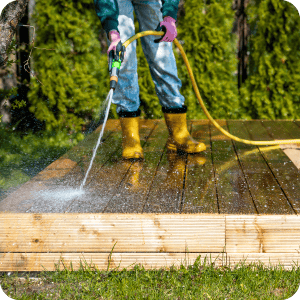It’s been a long winter. Now is the best time to get your house in order before summer arrives and you're off on some much-needed adventures. Here are some tips to keep your house and property in tip-top shape. Springtime maintenance, here we come!
Start With the Yard
The grass is growing taller and greener. Give your lawn equipment a tune-up, replacement parts, and an oil change in time for the current and upcoming grass-cutting season. When you're outside, trim and clean up any brush and overgrowth around your siding and foundation. In addition to adding curb appeal, it also prevents mold from growing and pests from invading your house. Last but not least, hire a tree service to remove any diseased branches or full trees that might fall.
HVAC Maintenance and Air Filters
You may need to service an air conditioner if it has been sitting idle for quite some time. The same applies to heating systems. Find a local HVAC company to handle your repair or do it yourself, but be careful not to damage any wiring or components. Spring and fall are the best times of year to replace your system's air filters. As a result, your home will have better air quality and your HVAC system will run more efficiently. Air filters also help minimize mold and pollen buildup. When you use a window unit for your AC, you need to clean the air filters and coils in the front and at the back, as you want to make sure the airflow isn't restricted.
Foundation and Leaky Gutters
A walk-around of your foundation is a good idea. Identify any large cracks or areas where critters may have entered your crawlspace. Consult a professional if there are any issues. Also, check or replace any damaged or leaky gutters. If you follow this simple step, you can avoid your carefully manicured landscaping from becoming a muddy mess after the early summer rains.
Siding and Eaves
Check the bottom portion of your siding for mold, chips, peeling paint, or dry rot (if it is wood). For the best results, sand down the exposed wood, replace any severely damaged wood and then paint over the primer. Peeled paint should likewise be treated in the same way. You should also use a pressure washer to clean your siding to prevent mold growth and bee nests. Make sure that you don't use too much spray to avoid damaging the paint.
Windows and Screens
If you have screens on your windows, remove them and clean the windows inside and out. Wash and rinse off the screens, then allow them to dry. Check to see if the caulking around your windows is getting brittle from the sun and weather. Caulking should be scraped off if there are issues, and new caulking should be applied. By reducing the airflow and improving insulation, the winter cold will be rebuffed and the summer heat kept out.
Clothes Dryer Vents
Keeping your clothes dryer vents clean every spring will reduce the risk of a fire. You should clean both the exterior and the interior vents (where the pipe connects to the dryer). Any excess lint that may have clogged the piping can be cleaned with a vacuum cleaner.
Fireplace and Chimney
It is the perfect time to clean your wood- or pellet-burning fireplace's flue before birds, bats, or bees make their homes there. The top of your chimney can be covered with loose chicken wire to prevent birds from turning it into a nest.
Roof
Check your roof for missing shingles or moss. Also, check for cracked or worn gaskets around ventilation piping and replace them if necessary. Important: Never use a power washer to clean your roof; instead, pick up some roof cleaner at your local hardware store.
Deck and Outdoor Living Areas
Sand down any rough patches where stain or paint is coming off the wood, especially in high traffic areas. After that, clean the wood with a pressure washer to get a deep clean. You can then stain or paint after a couple of nice sunny days. To finish, power wash your concrete or stone patio.
Smoke and Carbon Monoxide Detectors
Smoke and carbon monoxide detectors should be tested and batteries should be replaced if needed. If any detectors do not work, they should be replaced.
Water Heater
Remove any gunk and mineral deposits from your water heater by flushing. While some units allow you to attach a standard hose, others require you to use a large bucket. The simple task of draining the water heater can prevent blockages and promote water heater efficiency and longevity.
Refrigerator and Freezer
Clean visible coils of the refrigerator and freezer with a vacuum cleaner. Do not remove any other parts from your appliance while cleaning. By performing this once a year, you can extend the lifetime of your appliance and lower the risk of it breaking down in the middle of summer.
More Expensive Repairs
Need a new roof or water heater? Is your air conditioner on the fritz? Rivermark can help you finance those big repair bills with a Home Equity Loan or Line of Credit.




